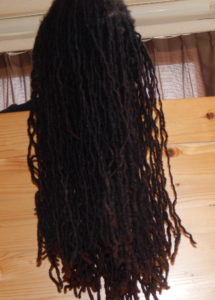
In the staff room of the rural middle school where I work, I went online to catch up on the latest happenings from home.
Amid the chitchat of a Movado/Popcaan feud, a throng of deportees sent home and Trump’s latest rants, was news that three people including an eight month old had been shot and killed in St. Mary. It was a gut-wrenching reminder of the horrific crime problem plaguing Jamaica.
So you can pardon the outsider who may be asking how come the topical issue on social media – one that had been trending for more than a week – was about a three year old boy who had been sent home from a Corporate Area prep school allegedly because “his hair might give other children lice”.
I scrolled through my Twitter timeline for several minutes. And it was clear that most of the people I follow were emotionally torn over the perceived discriminatory act. Many of us readily admit that Jamaica that there does exist a level of discrimination against people of different social classes – what we often refer to locally as classism. It is practiced everywhere – and by nearly everyone in both upper and lower social classes.
It’s easier for some Jamaicans to say that acts of discrimination is due to where they live rather than how they look. But when you ask the market vendor about the price of the cabbage, different quotes are given depending on how you look. Same thing for the taxi you wish to hire. The server at the restaurant has already decided who can give them a bigger tip and give service accordingly. If you think that the shade of your skin has nothing to do with, ask your light skin friends about their experience and compare.
Yet, from the looks of it, the child who was reportedly turned away from school didn’t come from the wrong side of the tracks. But his hair looked different. His hair didn’t match up with what the people on one side look like and that presented a problem.
This hairstyle in the early 70s got me sent home from Barclay’s Bank where I worked. pic.twitter.com/SuszADeSrw
— Fae A. Ellington (@FaeEllington) September 9, 2016
Perhaps the reason that this issue struck a chord with so many people was due to their own struggles with colour in a country where they are a part of the majority 95% black. For years, we’ve been conditioned to know our place and blindly follow the rules. Alongside the “out of many one people” and “you can be anything you want to be” mottos, our educational institutions have been very effective in convincing us that these goals can only be achieved if we follow certain rules and strive to look a certain way. Buck against these rules and you are doomed to fail.
The current minister of Education appears a shining example of this school of thought, even positing recently that prospective teachers ought to be screened (and perhaps culled) if they have tattoos. I vividly recall my mother crying real tears and expressing fear that I would be subjected to unwarranted discrimination when, in 2003, I began to grow dreadlocks. She was all too familiar with Jamaica’s horrific history of persecuting members of the Rastafarian community. Discrimination against people with certain hairstyles is not a new phenomenon, but should we allow our institutions, public or private, to continue to perpetuate these discriminatory practices against people who don’t fit into the standard dictated by a select few?
I, for one, am happy to live in an era where a growing number of Jamaicans are finding their voice and have decided that the status quo will not be maintained. Success does not only belong to people who look “a certain way”. In a country where black people with nappy hair make up 95% of the population, and when the fastest man in the world is a black boy from Trelawny, black Jamaicans should not sit back and be dictated to about how to wear our hair.
Of course, there’s another side to the debate – the fact that the parents can choose to send their child to a different institution and spare him the unnecessary rejection, humiliation and discrimination at such a tender age. But then we’d have to talk about elitism, and the separatist mentality that strongly believes even the legendary Usain Bolt does not belong in his upper Saint Andrew neighbourhood.